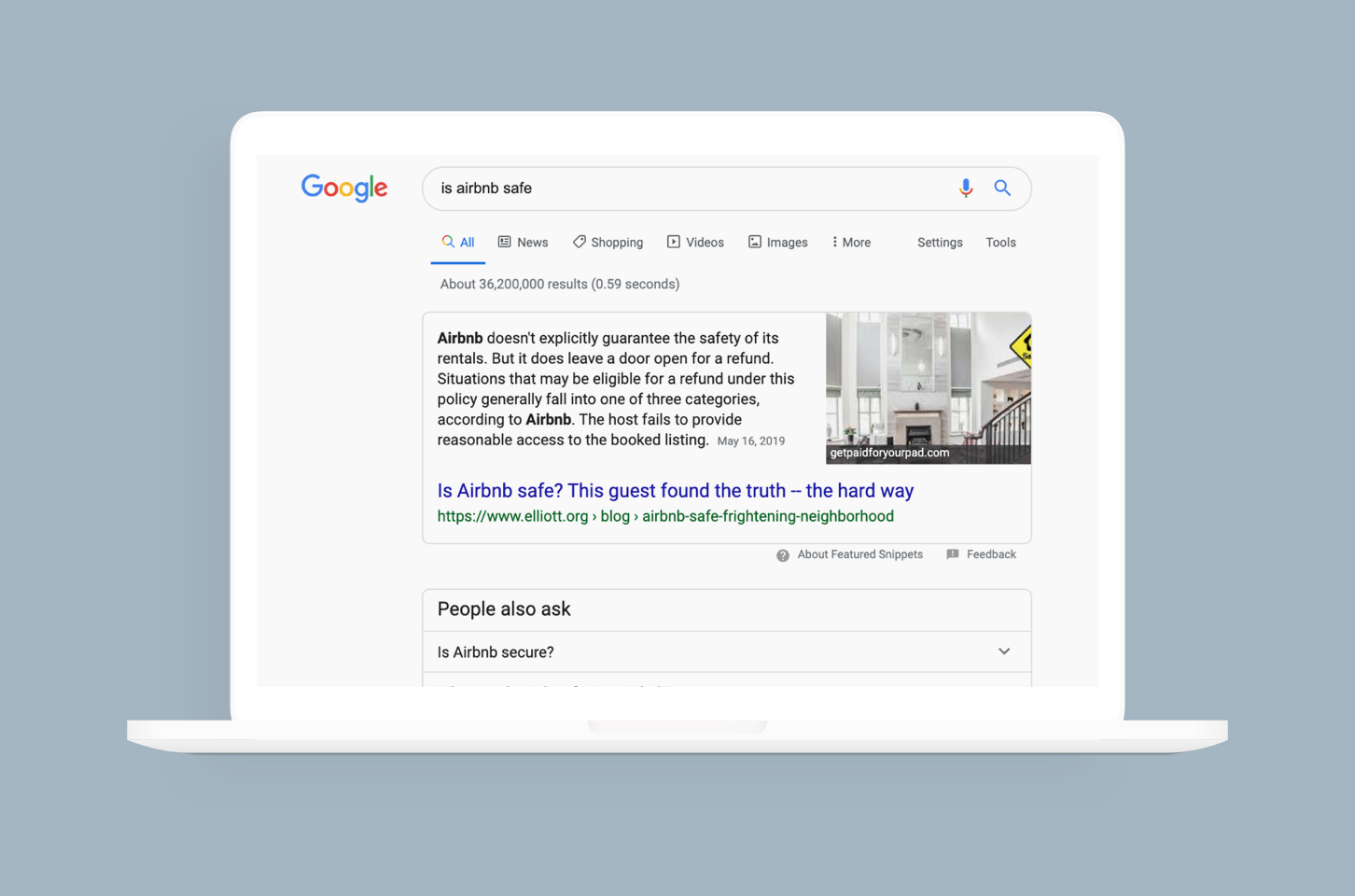Paid Search is included in almost every marketing budget in 2020, but a defensive paid search campaign is often overlooked and should be considered as a separate marketing line item.
What is “Defensive Paid Search”?
Mindgruve defines “defensive paid search” as using paid search ads to defend your brand from negative third-party reviews and listings.
Take, for example, the search query “is Airbnb safe”. This user is unsure if they should trust Airbnb.

The top 5 organic search results are all from third parties, which means Airbnb has no control of the Search Engine Results Page (SERP), the accuracy of the reviews or if they align with its policies. If Airbnb was running a defensive paid search campaign, then it would be able to control the message and send users to its safety policies page.
Airbnb is, of course, running paid search. But if the company’s CMO decides to run branded campaigns with the goal of garnering the best cost per conversion, the search account manager might ignore this search query. Even worse, it might be added as a negative keyword.
Why Does It Matter?
The performance of these defensive marketing campaigns should not be measured against the same cost per conversion goals. They should be separated, instead, from traditional paid search campaigns because the time to conversion is longer. A defensive paid search campaign will demonstrate its benefit through a data-driven attribution model and the account-wide lifetime value of your customers. By treating keywords similarly to brand keywords, it’s likely that the value of the defensive paid search keyword will be overlooked.
How Can I Leverage Defensive Paid Search?
When determining how much of your paid search budget should be allocated to defensive paid search, the general rule of thumb is ~10% of your total branded paid search budget.
To calculate accurate estimates for your brand, start by creating a keyword set for the defensive paid search campaign. Then run it through Google’s keyword planner to output a volume and cost per click estimates.
Here are a couple of examples from some of Mindgruve’s defensive paid search campaigns:
{Brand Name} reviews
{Brand Name} complaint history
Is {Brand Name} safe
{Brand Name} history
Cancel {Brand Name} service
{Brand Name} customer service
Should I Cancel {Brand Name}
{Brand Name} negative reviews
It’s Not Too Late
When reviewing your 2020 marketing budgets, don’t forget the quote from the legendary Alabama football coach Bear Bryant, “Offense wins games. Defense wins championships.”